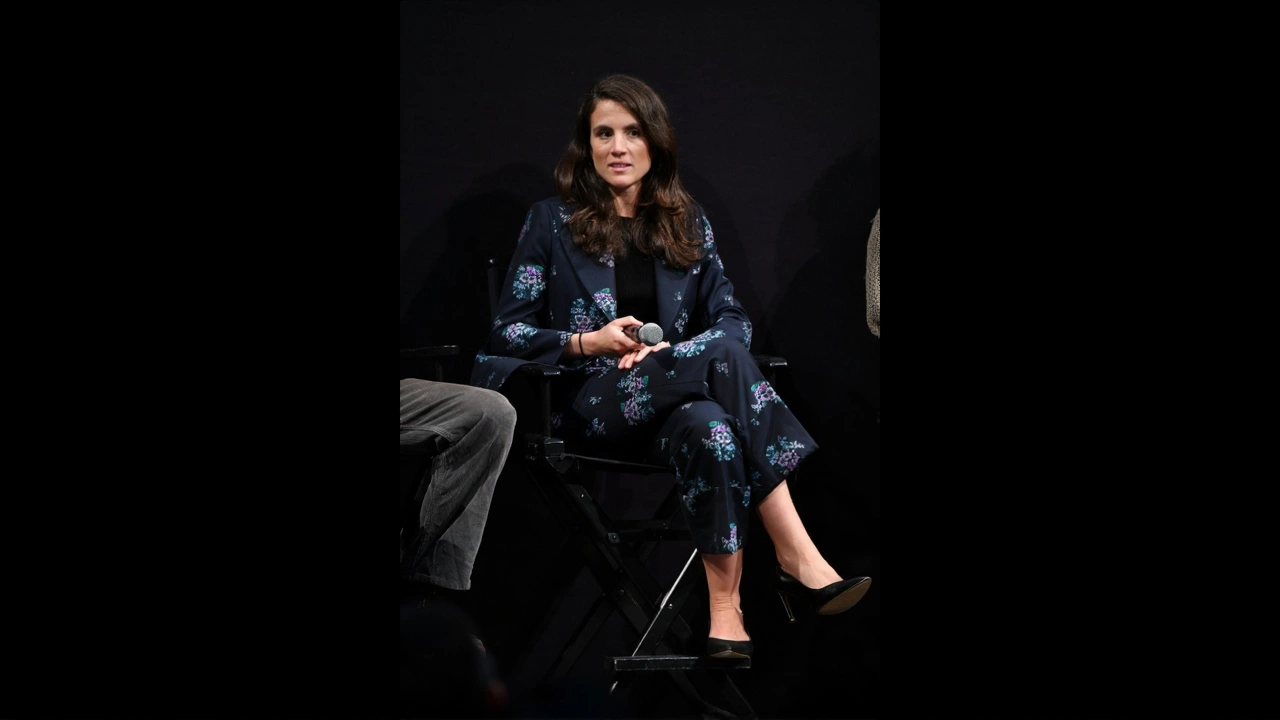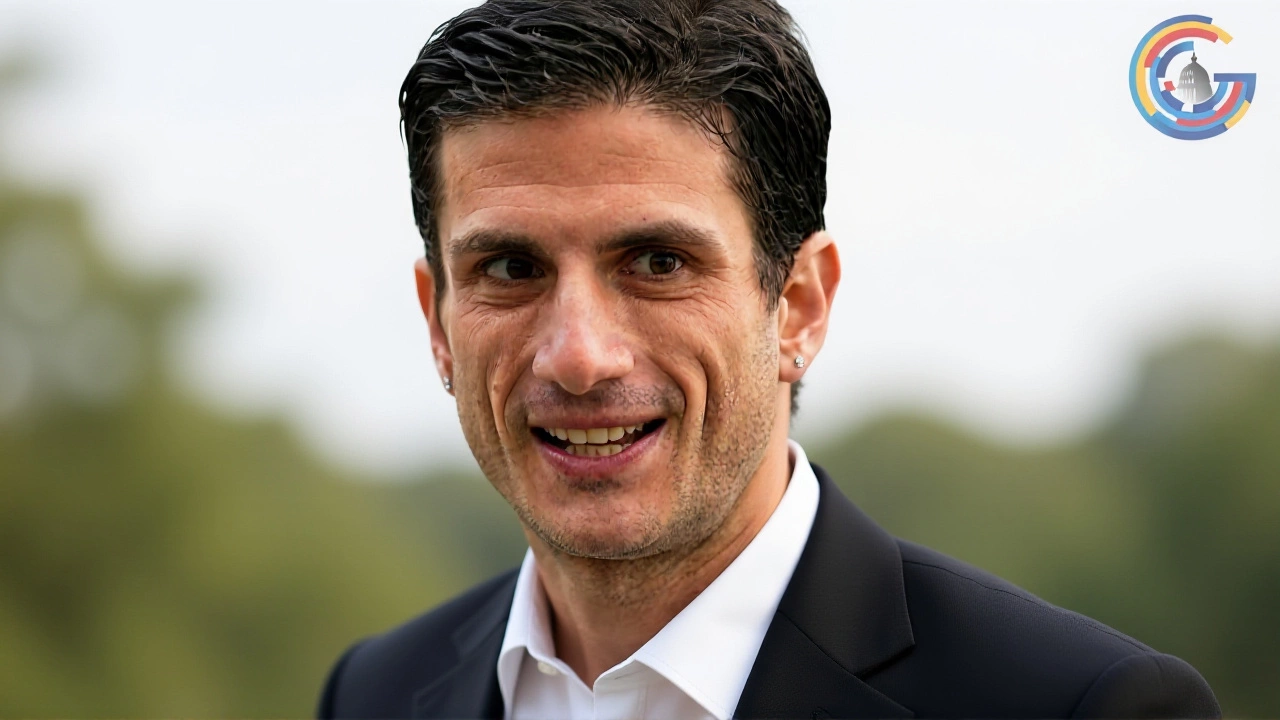Tatiana Schlossberg, JFK’s Granddaughter, Reveals Terminal Leukemia Diagnosis
 Nov, 23 2025
Nov, 23 2025
When Tatiana Schlossberg stood at the edge of a pool, nine months pregnant and still feeling invincible, she had no idea her body was betraying her. Just hours after swimming a full mile, doctors delivered a sentence that would redefine her life: terminal acute myeloid leukemia with the rare Inversion 3 genetic mutation. That moment, in early 2024, came not during a routine checkup, but after the birth of her daughter — a time meant for celebration, not catastrophe. Now, in a raw, unflinching essay published by The New Yorker on November 23, 2025, Schlossberg, 35, has shared her journey with the world: one year of chemotherapy, two bone marrow transplants, and the quiet, devastating realization that she has about a year left to live.
A Diagnosis That Defied Logic
"I wasn’t sick. I didn’t feel sick. I was actually one of the healthiest people I knew," Schlossberg wrote, recalling the disbelief that washed over her as doctors explained the abnormally low white blood cell counts detected postpartum. It’s a paradox that haunts many cancer patients — the body looks fine, moves fine, even thrives — while inside, chaos is unfolding. Acute myeloid leukemia (AML) attacks the bone marrow, crowding out healthy blood cells with malignant ones. Most cases are diagnosed in older adults, but Schlossberg’s case is even more unusual: the Inversion 3 mutation occurs in fewer than 1% of AML patients, according to the American Cancer Society. It’s aggressive, resistant to standard treatments, and carries a median survival rate measured in months, not years.Family, Transplants, and Clinical Trials
Her treatment path has been grueling. Multiple rounds of chemotherapy left her exhausted, nauseated, and bald. Then came the transplants — one from her older sister, Rose Schlossberg, born in 1988. The act of donation, Schlossberg notes, was both a lifeline and a profound emotional burden. "Rose gave me her blood, her marrow, her hope," she wrote. "I didn’t ask for that kind of sacrifice. But she gave it anyway." She also enrolled in at least two experimental clinical trials, hoping for a breakthrough. Each time, remission felt like a gift — only for the cancer to return, more stubborn than before. "During the latest clinical trial, my doctor told me that he could keep me alive for a year, maybe," she recounted. That estimate, chilling in its simplicity, became her new timeline.A Legacy Etched in History
Schlossberg is not just a journalist — she is a living thread in one of America’s most storied families. She is the daughter of Caroline Bouvier Kennedy, the only surviving child of President John F. Kennedy and Jacqueline Kennedy Onassis. Her brother, Jack Schlossberg, born in 1993, and her sister Rose are her only living siblings — and together, they are President Kennedy’s only grandchildren. The Kennedy name carries weight — from the 1963 assassination in Dallas to Caroline’s later role as U.S. Ambassador to Japan and Australia. But for Tatiana, legacy is not about titles. It’s about presence. About being here, now, for her infant daughter.
What This Means for Rare Cancer Awareness
AML affects roughly 20,000 Americans each year, with a five-year survival rate of just 30% overall. But for those with Inversion 3, the odds are far worse. Schlossberg’s decision to go public isn’t just personal — it’s political. In a healthcare system where rare diseases often go underfunded and overlooked, her voice carries the weight of visibility. Her essay doesn’t plead for donations or demand policy change. It simply says: This is what terminal cancer looks like in a 35-year-old mother. And it’s not glamorous. It’s messy. It’s full of fear, love, and the stubborn will to watch your child grow up.What Comes Next
There are no public appearances scheduled. No fundraising campaigns announced. Schlossberg’s focus remains on her daughter, her husband (unnamed in public reports), and the quiet moments between treatments. She continues clinical trials, though her prognosis has hardened into a countdown. Her hope, she writes, is to see her daughter turn one. Maybe two.Her story echoes beyond the Kennedy name. It speaks to every parent who’s ever stared at a medical report and wondered, "How do I say goodbye?" It reminds us that cancer doesn’t discriminate by pedigree — but sometimes, a voice with a legacy can change the conversation.
Frequently Asked Questions
What is Inversion 3 in acute myeloid leukemia?
Inversion 3 is a rare genetic abnormality in AML where a segment of chromosome 3 is flipped, disrupting critical genes that regulate blood cell development. It’s found in fewer than 1% of AML cases and is associated with very poor response to standard chemotherapy, often requiring aggressive treatments like stem cell transplants and experimental therapies. Survival rates are typically under 12 months without successful intervention.
How did Tatiana Schlossberg’s diagnosis affect her family?
Her diagnosis deeply impacted her immediate family — particularly her sister Rose, who donated bone marrow, and her infant daughter, born in 2024. Her mother, Caroline Kennedy, has remained private but is understood to be heavily involved in her care. As JFK’s only grandchildren, Tatiana, Rose, and Jack Schlossberg now face the emotional weight of their family’s history while navigating a deeply personal tragedy.
Why is Schlossberg’s public disclosure significant?
As a respected journalist and member of a globally recognized family, Schlossberg’s essay brings rare cancer into mainstream discourse. Most AML patients with Inversion 3 never speak publicly. Her transparency humanizes a disease often reduced to statistics, and highlights the urgent need for targeted research funding — especially for mutations that affect younger patients.
What’s the survival rate for AML with Inversion 3?
The median survival for patients with Inversion 3 AML is less than one year, even with intensive treatment. Studies from the National Cancer Institute show that fewer than 10% survive beyond two years. This subtype is considered high-risk, often requiring allogeneic transplants and enrollment in clinical trials — both of which Schlossberg has undergone.
Is there any new treatment being developed for Inversion 3 AML?
Researchers are exploring targeted therapies like menin inhibitors and FLT3 inhibitors, which show early promise in lab studies for Inversion 3 cases. However, these are still in clinical trials and not yet FDA-approved for this specific mutation. Schlossberg’s participation in trials may help accelerate data collection, potentially benefiting future patients with this rare subtype.
How has Schlossberg’s journalism career influenced her response to illness?
Her background as an environmental journalist trained her to observe, document, and communicate complex systems — skills she’s now applying to her own body. She doesn’t shy from data, timelines, or emotional truth. Her essay reads like investigative reporting on her own life: precise, unvarnished, and deeply human. It’s journalism as survival.